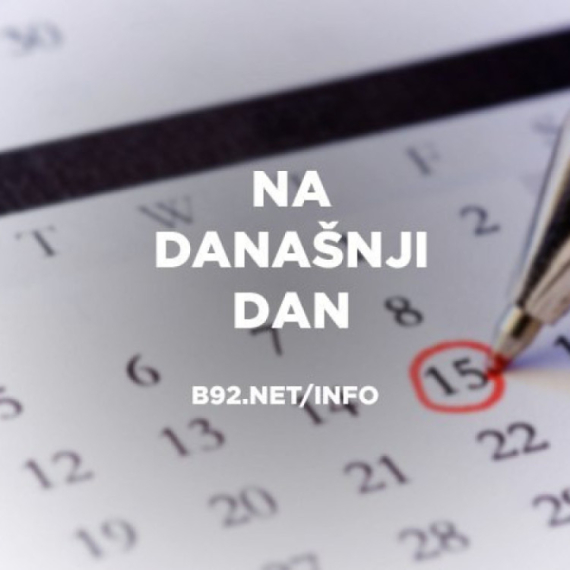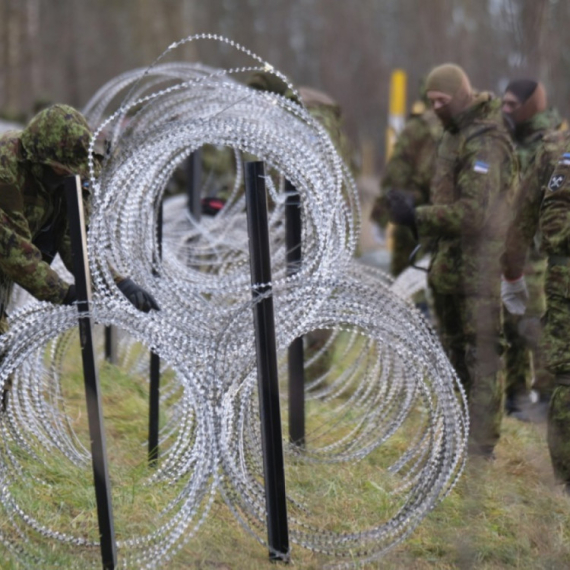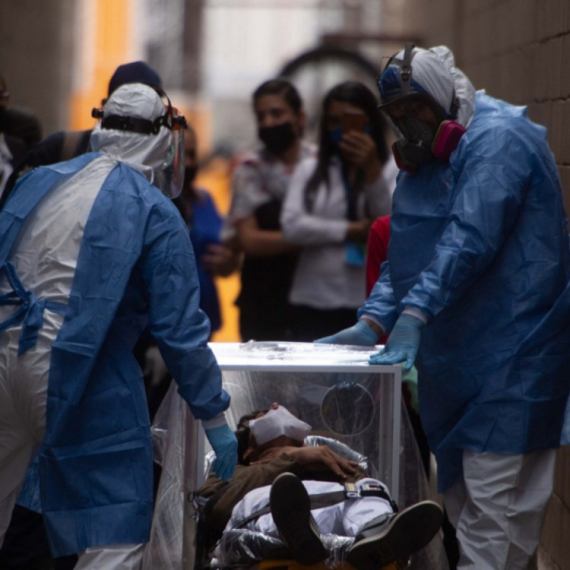"In Croatia, war crimes pay"
The decision to grant early release to an ex-general guilty of war crimes "confirms that in Croatia, it pays to commit (war) crimes", says Milojko Budimir.
Wednesday, 23.11.2011.
13:43

The decision to grant early release to an ex-general guilty of war crimes "confirms that in Croatia, it pays to commit (war) crimes", says Milojko Budimir. Budimir, who heads the Serb Refugee Associations, thus commented on the news that Mirko Norac, found guilty on war crimes charges and sentenced to 15 years in prison, will be a free man after serving two-thirds of his jail-time. "In Croatia, war crimes pay" Budimir told SRNA news agency that this was an indication that in Croatia, a perpetrator of a crime turns into a hero, "especially if his victims were Serbs". "The very ruling that sentenced Norac to 15 years for the crimes committed in Gospic and the Medak Pocket shows a bias and a soft spot that the Croatian judiciary has for Croats who committed crimes against Serbs," Belgrade-based daily Blic has quoted him as saying. Budimir also stated that the early release was "no surprise", and that the minimum security jail where Norac served his sentence was "no jail in the classical sense of the word". "This is supported by the fact that he got married and fathered two children during that time. Besides, a grandiose house was built for him in Biograd, sized 300 sq meters. He would never have achieved that had he been free during that time," the refugees' representative said. He further asserted that the early release decision showed that courts in Croatia were "ethnically motivated", promoting double standards when it came to war crimes trials. According to Budimir, although 16 years had passed since the end of the civil war in Croatia, many graves remain undiscovered, and for this reason the remains of some victims are still unidentified: "Although we've been pointing out to this problem for years, the European Union showed no understanding and closed Chapter 23 (in negotiations) with Croatia - related to the judiciary and basic human rights - thus opening the door wide for Croatia's membership in the EU." He also noted that ahead of elections in that country, the Norac decision was meant to further motivate HDZ party supporters to vote for its candidates, and added that former HDZ leader and Croatian President Franjo Tudjman "did all he could in order for the war to break out, with the goal of getting rid of (ethnic) Serbs and lowering their number to three percent (of Croatia's population)". "Mirko Norac certainly played an important role in this, therefore, an 'appropriate' ceremony is to be expected when he leaves prison," concluded Budimir.
"In Croatia, war crimes pay"
Budimir told SRNA news agency that this was an indication that in Croatia, a perpetrator of a crime turns into a hero, "especially if his victims were Serbs"."The very ruling that sentenced Norac to 15 years for the crimes committed in Gospić and the Medak Pocket shows a bias and a soft spot that the Croatian judiciary has for Croats who committed crimes against Serbs," Belgrade-based daily Blic has quoted him as saying.
Budimir also stated that the early release was "no surprise", and that the minimum security jail where Norac served his sentence was "no jail in the classical sense of the word".
"This is supported by the fact that he got married and fathered two children during that time. Besides, a grandiose house was built for him in Biograd, sized 300 sq meters. He would never have achieved that had he been free during that time," the refugees' representative said.
He further asserted that the early release decision showed that courts in Croatia were "ethnically motivated", promoting double standards when it came to war crimes trials.
According to Budimir, although 16 years had passed since the end of the civil war in Croatia, many graves remain undiscovered, and for this reason the remains of some victims are still unidentified:
"Although we've been pointing out to this problem for years, the European Union showed no understanding and closed Chapter 23 (in negotiations) with Croatia - related to the judiciary and basic human rights - thus opening the door wide for Croatia's membership in the EU."
He also noted that ahead of elections in that country, the Norac decision was meant to further motivate HDZ party supporters to vote for its candidates, and added that former HDZ leader and Croatian President Franjo Tuđman "did all he could in order for the war to break out, with the goal of getting rid of (ethnic) Serbs and lowering their number to three percent (of Croatia's population)".
"Mirko Norac certainly played an important role in this, therefore, an 'appropriate' ceremony is to be expected when he leaves prison," concluded Budimir.


























Komentari 3
Pogledaj komentare